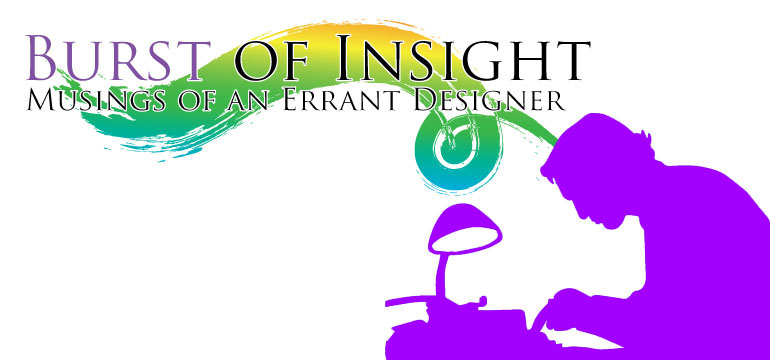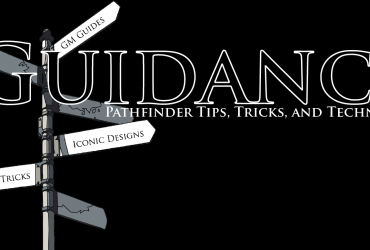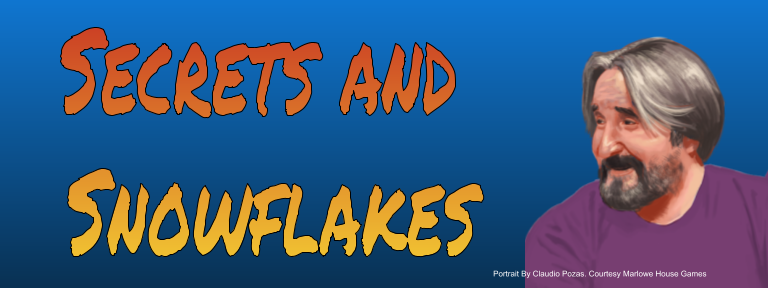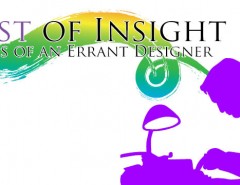Welcome to the latest installment of the Burst of Insight blog where we discuss game design. In the last blog, I was talking about agency specifically its absence as a key element of horror design, this week I’d like to discuss the inverse. Offering the players and characters you are designing for additional agency can create a more optimistic mood.
Additional agency can come in a number of forms, often narrative but not necessarily, in the d20 Star Wars games Wizards of the Coast included Force Points which were echoed in the Action Points used in the Eberron Campaign Setting. Pathfinder has its own variant of this concept with Hero Points. With these rules you can get rerolls, bonuses on d20 rolls, refresh expended abilities, and basically push your characters just a little bit farther. Eberron leveraged this to emphasize the two-fisted pulp style of the setting while Pathfinder’s slightly more subdued Hero Points are used to emulate more traditional fantasy heroism. In both cases, it helps make sure the player character’s most potent abilities are available and useful when they are most needed without fundamentally changing the character.
A ruleset that also increases character agency but also changes the characters it affects is Pathfinder’s Mythic ruleset (particularly as it has been expanded on by third-party publishers). Character’s gain new abilities, more potent feats and spells, and are able to take on truly epic opponents. These rules add mythic tiers of power to each character (and to some enemies) which allow the PCs the opportunity to accomplish truly awesome, sometimes world-changing deeds such as wrestling a god like Hercules or closing the World Wound. Sure, the opponents are bigger too but these rules still offer player characters a lot of power to play with. These adventures, especially in their recounting, tend to be brighter and more four-color than your typical dungeon crawl.
So rules can affect tone, and yes you can play grim and gritty with any of the options above, but largely more power and agency on the part of the players helps to lighten the mood. But, what if you’re looking for mechanics that add agency but don’t like the current options, well then maybe we create our own.
Mid-Day Recovery
Not quite as effective as a full night’s rest this optional rule allows players and GMs to combat the “6-minute adventuring day.” Once per day, a party who have been actively exploring or adventuring for at least four hours or have been severely impaired may at the GM’s discretion perform a mid-day recovery. The PC’s rest for at least an hour and for up to 2 hours. For each 30 minutes spent resting they regain 1 quarter of the character resources (hit points, spells, per day abilities etc.) they would gain from sleeping for eight hours. Any fractional increases are rounded down until the final 30 minutes. Prepared spellcasters may regain spells they had previously cast but cannot prepare new ones.
The recovery period can be interrupted, by wandering threats so PC’s are encouraged to find a secure area where they can rest. If it is interrupted character’s only gain the benefit of each full 30 minutes of rest they were able to get. Even if it is interrupted a party only gets one mid-day recovery per day and all members of the party must take it together.
The Mid-day recovery rule doesn’t fundamentally change the game largely it just alters the narrative of the adventure. It can affect balance if the pacing of the adventure is specifically designed to tap PC’s resources and prevent them from camping too frequently. This is a good rule to make characters in a dungeon crawl such as the Emerald Spire Superdungeon feel more effective without disrupting powers or tracking additional resources such as hero points.
Heroic Bursts
This optional rule is designed to emulate some of the most effective elements of the Action and Hero point systems without having to track pools. Each character may select 2 bursts from the list below one becomes a per encounter ability able to be used over and over each day and the other can only be used once per day. Some heroic bursts may only be used once per day and those are marked with an asterisk(*) two of these may be selected if a player chooses but they then lose the ability to use a heroic burst in each encounter.
Bursts may be retrained for free at any level but a character can never have more than two.
- Act Out of Turn*: Once a full round of combat has elapsed, you may use a heroic burst to take your turn immediately. Treat this as a readied action, moving your initiative to just before the currently acting creature. You may only take a move or a standard action on this turn.
- Bonus: If used before a roll is made, this heroic burst grants you a +4 luck bonus to any one d20 roll. If used after a roll is made, this bonus is reduced to +2. You can use your burst to grant this bonus to another character, as long as you are in the same location and your character can reasonably affect the outcome of the roll (such as distracting a monster, shouting words of encouragement, or otherwise aiding another with the check).
- Boost Defense: You may use this burst when fighting defensively to gain an additional +2 bonus to your AC for 1 round per level or you stop fighting defensively.
- Combat Insight: When making an initiative check you may use this heroic burst to roll 2 d20s and take the best result instead of your normal 1d20 roll. If you have an ability that lets you roll 2 d20s already this ability stacks allowing you to roll 3 dice and take the best.
- Defensive Insight: Choose a specific save (fortitude, reflex or Will). When rolling this specific save you may use this heroic burst to roll 2 d20s and take the best result instead of your normal 1d20 roll. If you have an ability that lets you roll 2 d20s already this ability stacks allowing you to roll 3 dice and take the best.
- Extra Action*: You may use a heroic burst on your turn to gain an additional standard or move action this turn.
- Lucky*: You may use this heroic burst to reroll any one d20 roll you just made. If you are affecting an ability or heroic burst that allows you to roll multiple dice you may roll those as well. You must take the results of the second roll, even if it is worse.
- Recall*: You can use this heroic burst to recall a spell you have already cast or to gain another use of a special ability that is otherwise limited. This should only be used on spells and abilities possessed by your character that recharge on a daily basis.
- Skill Insight: When making a skill check you may use this heroic burst to roll 2 d20s and take the best result instead of your normal 1d20 roll. If you have an ability that lets you roll 2 d20s already this ability stacks allowing you to roll 3 dice and take the best.
EXAMPLE: Thomas decides to select Combat Insight and Bonus for his fighter. He decides that he wants to be able to act quickly more often and makes that his per encounter burst, which means he’ll only get the benefits the burst Bonus once per day.
So hopefully over the last two installments, I’ve been able to illustrate how player and character agency in the rules can dramatically alter the feel of a campaign. Even the methods of how you grant or restrict agency will have an impact on how a game feels. Campaigns that use action points versus hero points or heroic bursts will all feel different although the rules systems are similar. None of those campaigns will be at all like a mythic campaign or a game set in location like Ravenstone. Even though all of these campaigns would be run using the Pathfinder Roleplaying game rules.
If you have any thoughts on this topic I’d love to hear them. Leave a comment below and join the discussion.





